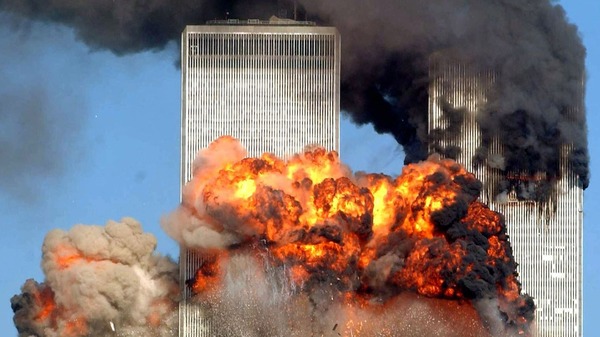Since then, several American writers and political analysts have accused Saudi Arabia of supporting violent extremism, forgetting that the kingdom is suffering from terrorism as much as the United States is.
A strategic decision was made by Washington to change the balance of power in the region, neglecting 68 years of relations with Riyadh. This was accomplished via military intervention in Afghanistan in 2001 and Iraq in 2003. Nobody could have prevented these invasions because American dignity had been dealt a severe blow and the “war on terror” - or rather against Sunni Islam - became a global war.
Once the United States had become embroiled in these wars, it could not have found a better partner than Iran. Gradually, the regime that was denounced by U.S. President George W Bush as part of the “axis of evil” became a partner against terrorism, and gained legitimacy under the administration of his successor Barack Obama.
Radwan el-Sayed describes in his book “The Arabs and Iranians” how besides the misplaced wars in Afghanistan and Iraq, a bigger mistake was committed by the Obama administration when it withdrew American troops from Iraq. Washington negotiated with Iran to bring about a safe withdrawal.
In return Tehran asked for then-Iraqi Prime Minister Nouri al-Maliki to remain in power, for the Americans to forget about Syrian President Bashar al-Assad and return their ambassador to Damascus, and allow Hezbollah to dominate Lebanon’s government while promising not to harass Israel or international forces. An Iranian political opponent told me one of the reasons the United States turned its back on Iran’s Green Revolution in 2009 was because of these deals.
Regarding the nuclear agreement, the United States focused only on nuclear weapons and uranium enrichment. It never discussed to what extent sanctions relief would enable Tehran to exert its influence, or what the consequences would be. If Iran was able to negotiate with Washington about such crucial matters as the U.S. troop withdrawal from Iraq before sanctions were lifted, what power does it have now?
The handling of Iraq by Iran did not come out of the blue. Tehran had been planning such a move since the fall of Saddam Hussain’s regime, demonstrated by how it courted his opposition since the 1980s. When American troops entered Iraq in 2003, so did armed Shiite groups.
Iranian infiltration
Tehran did not stop with Iraq, but has expanded by penetrating Shiite communities in Arab countries to obtain their allegiance, as happened in Lebanon, Bahrain, Kuwait, Saudi Arabia and Yemen.
Tehran has also recruited as secret agents those who go to Iran to study in religious seminaries. The first thing Tehran did in Iraq in 2003 was control religious seminaries by establishing mega-projects in Najaf and Karbala - the holiest cities for Shiites after Makkah and Medina - and developing religious authorities loyal to Iran.
Tehran has penetrated security circles via alliances with Arab regimes, and used aid to extend its geographic influence, as happened in Syria and Sudan. Iran has also penetrated Sunni political Islam, as happened with the Muslim Brotherhood, with which Tehran has established good relations. Iran has taken advantage of the fact that many Brotherhood members are persecuted in their own country, and expresses support for them.
Tehran has gained a good reputation among Arab Sunni Islamists because of its support for Islamist organizations that are fighting Israel, such as Hamas and Islamic Jihad. Iran has also infiltrated missionary operations via its official and unofficial bodies to spread Shiism in Arab countries, Africa, and central and east Asia. Authorities in Egypt, Sudan, Morocco and elsewhere have complained about Iran exerting influence under the guise of missionary work.
Extremism
The lifting of sanctions on Iran without signing a formal treaty that guarantees it will stop all these interventions will lead to Iranian regional hegemony and make another 9/11 inevitable. According to prominent political analyst Dr Zuhdi Jasser, the fact that no Shiite militias were involved in 9/11, or on American soil generally, is not because they are more moderate, but because of sanctions on Iran.
Accordingly, handing over the files of the Islamic State of Iraq and Syria (ISIS) and other extremist Sunni groups to Tehran will fan the flames of Sunni extremism and bolster extremist Shiite militias. As a result, the United States will find itself not only fighting Sunni terrorist groups, but also being attacked by Shiite extremists.
Terrorist incidents are now at least five times more frequent today than they were before 9/11, according to the Global Terrorism Index and other reports. That proves that the U.S. approach is not only wrong but dangerous. It is a mistake of historical significance that Washington has lost the trust of traditional allies such as Saudi Arabia due to the ramifications of 9/11, which was not even its fault.
Changing strategies is crucial; withdrawing and passing on a duty of care to unreliable actors will only aggravate the problem. If the current approach to fighting terrorism is helping anyone, it is radicals and extremists at the expense of moderates.
_________
Najat AlSaied is a Saudi academic; a graduate in media studies from the University of Westminster, London-UK (October, 2013). She is the author of: Screens of Influence: Arab Satellite Television & Social Development. She is an Assistant Professor at Zayed University in the College of Communication and Media Sciences. She can be reached at: najwasaied@hotmail.com.









 Home
Home Politics
Politics











